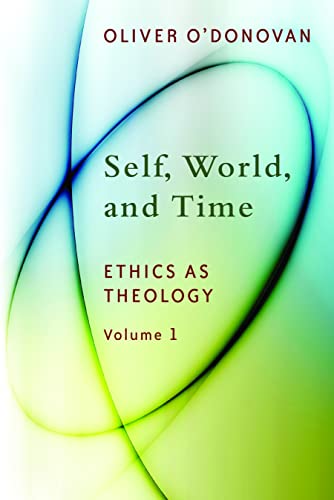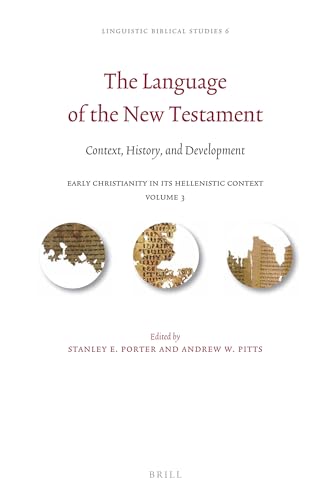Self, World, and Time: Ethics as Theology; Volume 1: An Induction
Written by Oliver O’Donovan Reviewed By J. David MoserIt has been nearly thirty years since Oliver O’Donovan, Professor of Christian Ethics and Practical Theology at the University of Edinburgh, published his seminal monograph in theological ethics: Resurrection and Moral Order (RMO). In RMO, O’Donovan sought to develop an account of how Jesus Christ’s resurrection orders the discipline of Christian ethics. RMO focused upon the objective order of created reality and the renewal of subjective agency in light of Christ’s resurrection. In O’Donovan’s latest work, Self, World, and Time: Ethics as Theology, Volume 1—An Induction, we find some of the same key concepts, but this work takes a different direction in that O’Donovan explores what it might mean to think through the objectivism of moral order and subjective agency in relation to the Holy Spirit—something RMO did not spell out enough. It is the first of what will be a trilogy, and it is an “induction” to the following volumes, providing the conceptual tools for us to think about just how we are to reason morally.
The curious subtitle of the series, Ethics as Theology, is purposeful. O’Donovan’s task in this book is to show how ethics is a discrete discipline arising from the reality of human experience, but that ethics always leads into its theological grounds without collapsing itself into theology. In chapter 1, “Moral Awareness,” O’Donovan shows how we cannot avoid moral reasoning any more than we can avoid waking up in the morning—we are always caught up in it. Morality is thus the pattern of reasoning that follows from our doings: it is how we think about what we do from our place in the world. O’Donovan uses the biblical metaphor of “wakefulness” as a way of describing this sort of active moral agency. The agent awakes to the world, that is, the objective order of creation, the self and its reflection on the task of agency, and time, the possibilities for action. Self, world, and time are the three necessary poles constitutive of moral experience.
In chapter 2, “Moral Thinking,” O’Donovan shows how moral thinking progresses from awareness. Against intuitionist or emotivist ethical theories, O’Donovan points out that morality is not self-evident. It arises from the processes of deliberation and reflection upon the world as we receive it. Therefore practical reason is discursive—“it has to negotiate a way between the two poles of description and resolution, the one determinate and the other indeterminate . . . ” (p. 29) We treat these processes with seriousness due to the sense of responsibility we obtain in engaging in practical reason. Yet the freedom correlative to responsibility we have acquired is not something that arises from the self (intuition), our individual or communal history (narrative ethics), but only from a “source behind history” (p. 37). That is, the requisite freedom for moral reasoning depends upon a source external to creation. And that source, God himself, must do a new creating within us so we can claim our freedom to act rightly.
In chapter 3, “Moral Communication,” O’Donovan says that moral thinking is only possible within human communities where moral discourse can occur. The grounds for moral thinking also are made possible by various structures of authority. Authority grants unity to moral thought, and gives it meaning. It is the “correlate of our freedom: within our social communications the moment of initiative is given to us” (p. 55). Moral thinking is possible by moral communication correlative to authority.
Chapter 4, “Moral Theory,” is where we begin to discern the meaning of the subtitle of this series: “Ethics as Theology.” The preposition “as” is purposeful, since it denies the Barthian collapse of ethics into theology while also avoiding their isolation from one another common in modern Christian ethics. Many of the mistakes made in modern Christian ethics, O’Donovan observes, occur when the discursive character of ethics collapses into dogmatic theology or reverts to naive biblical literalism. He indicts Karl Barth’s famous dictum “ethics is dogmatics, and dogmatics is ethics” for forgetting the deliberative, discursive character of ethics and “its relation to dogmatic truth” (p. 101). Similarly, those looking for an ethics that says, “The Bible says x, that settles my position on that subject,” confuse close hermeneutical scrutiny of the text for true ethical deliberation and resolution vis-à-vis Scripture. “Moral thinking responds to the authority of Scripture with a deliberated and free action, and in no other way” (p. 79). This claim implies an Augustinian vision of freedom as creaturely love ordered towards obedience. Obedience to God through Scripture, then, “is a matter of how our own confession is to harmonize with the testimony of Scripture, and it is concerned to achieve a correspondence between the whole train of thought of the text from A to B and the whole train of our thought from X to Y” (ibid.). In other words, creaturely freedom in moral reasoning requires the formation of biblically shaped imaginations that can learn to perform the Scripture through deliberative reflection and action.
Chapters 5–6, “The Task of Moral Theology” and “The Trajectory of Faith, Love, and Hope” open the way forward for “ethics as theology.” O’Donovan expands upon RMO by adding “a necessary complement to it, its angle of vision turned principally towards the renewal of agency and its opening to the forward calling of God” (p. 94). The key for the renewal of subjective agency in O’Donovan’s account, then, is the Holy Spirit. This relation will be spelled out more clearly in the final volumes. O’Donovan finishes the book with an analysis of the three biblical-theological virtues in Christian ethical reflection, faith, hope, and love, which will shape the discussion in the final two volumes.
Self, World, and Time, Volume 1 is an achievement for many reasons. One, despite its extremely dense prose, it is remarkably clear. Two, the book’s message is timely and urgent. It deserves several re-readings, not only because the book’s density requires it, but because the very nature of Christian ethics, as O’Donovan would have it, requires training in discursive moral reasoning that cannot come about by the memorization of a few principles or Scripture passages. Thus the kind of induction to Christian ethics O’Donovan gives us does not generate fully competent moral persons in an overnight miracle, but requires a lifetime of biblical, Spirit-filled improvisation. This is exactly the kind of word that Christian ethics as a discipline needs, especially in the evangelical world, where it is far too easy to address the pressing ethical issues of our time with simple appeals to the Bible. These approaches too often forget the immense difficulty required to move from Scripture and prayer to knowing what we must do, where we are always acting and being acted upon by the world and other agents in the forward march of time. The endless possibilities time presents to the church requires the skill to know how to act in every age. Finally, O’Donovan is immensely learned, and the reader will benefit from his interactions with other theologians and philosophers who precede him. The only weakness I perceive in this book is that I wanted O’Donovan to say even more about the Spirit in his account of the renewal of subjective agency. But that will have to wait for the next two volumes, where I am sure we will benefit richly from the fruits of O’Donovan’s lifetime of learning.
J. David Moser
J. David Moser
Trinity Evangelical Divinity School
Deerfield, Illinois, USA
Other Articles in this Issue
Too often people think of the Reformation in terms of an abstract theological debate...
Abstract: Evangelical Faith and the Challenge of Historical Criticism, edited by Christopher Hays and Christopher Ansberry, argues that evangelical scholars have failed to embrace historical criticism to the extent that they could and should...
Thomas Prince, editor of The Christian History—the first religious periodical in American history—could hardly have invented the Great Awakening, as Frank Lambert argues...
Theology is first and foremost about who God is and then about what he has done...
I would like to consider several elements in reviewing Bray’s work...







